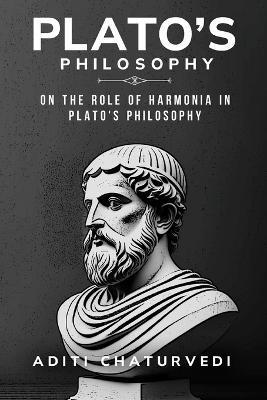On the Role of Harmonia in Plato's Philosophy

On the Role of Harmonia in Plato's Philosophy
The notion of harmonia occupies a central position for the early Greeks in their writings on cosmology, society, and the self. As Emile Benveniste (1973, pp. 101-102) has noted, "order" is, in general, an extremely important concept for Indo-Europeans and is denoted by the Greek harmonia, the Sanskrit ṛta (order), Avestan asa (order), and the Old Persian arta (truthful order), all of which descend from the same Indo-European root - *H2er. For the Pythagoreans - and, arguably, for other pre-Socratics such as Heraclitus and Empedocles - harmonia described the structure of a unified world order and, moreover, a particular kind of order, not only in the universe but in many other domains, including mathematics, cosmology, psychology, ethics, poetics, and music. What differentiates harmonia from some other notions of order is the fact that, although it joins entities together, it does not simply unite them into a homogeneity - it consists, rather, in alliance of multiple entities wherein both their similarity and their dissimilarity is recognized. I hope to clarify what this means in the chapters that follow.
475.13Lei
475.13Lei
Livrare in 2-4 saptamani
Descrierea produsului
The notion of harmonia occupies a central position for the early Greeks in their writings on cosmology, society, and the self. As Emile Benveniste (1973, pp. 101-102) has noted, "order" is, in general, an extremely important concept for Indo-Europeans and is denoted by the Greek harmonia, the Sanskrit ṛta (order), Avestan asa (order), and the Old Persian arta (truthful order), all of which descend from the same Indo-European root - *H2er. For the Pythagoreans - and, arguably, for other pre-Socratics such as Heraclitus and Empedocles - harmonia described the structure of a unified world order and, moreover, a particular kind of order, not only in the universe but in many other domains, including mathematics, cosmology, psychology, ethics, poetics, and music. What differentiates harmonia from some other notions of order is the fact that, although it joins entities together, it does not simply unite them into a homogeneity - it consists, rather, in alliance of multiple entities wherein both their similarity and their dissimilarity is recognized. I hope to clarify what this means in the chapters that follow.
Detaliile produsului










